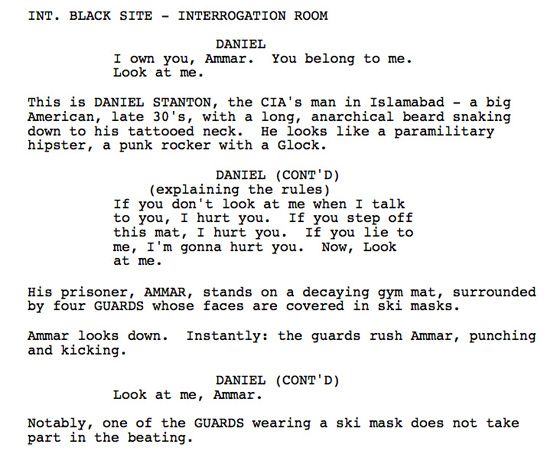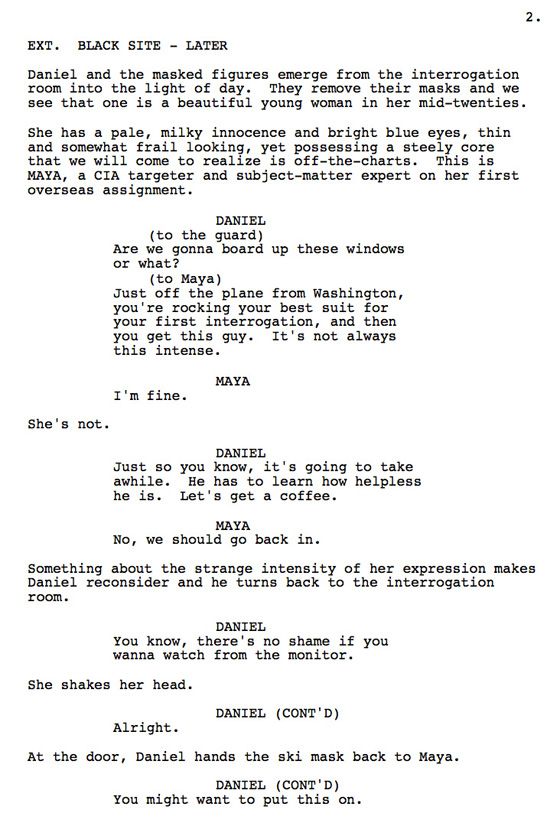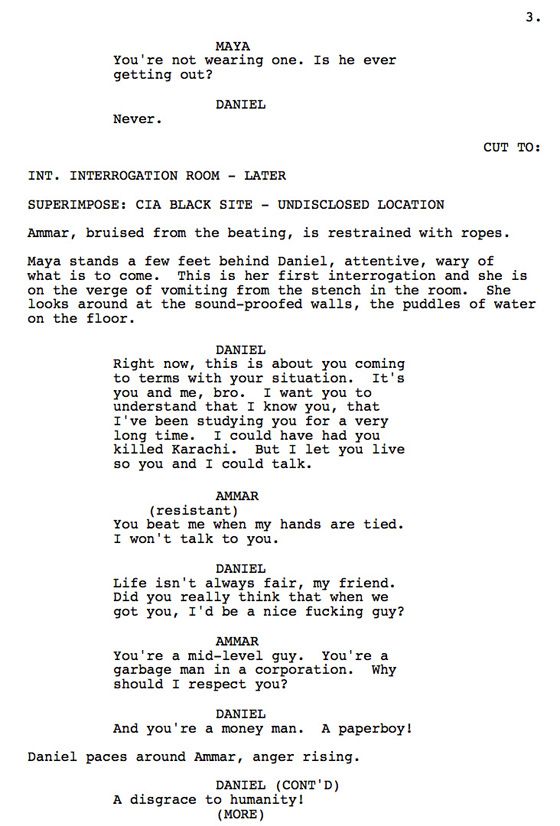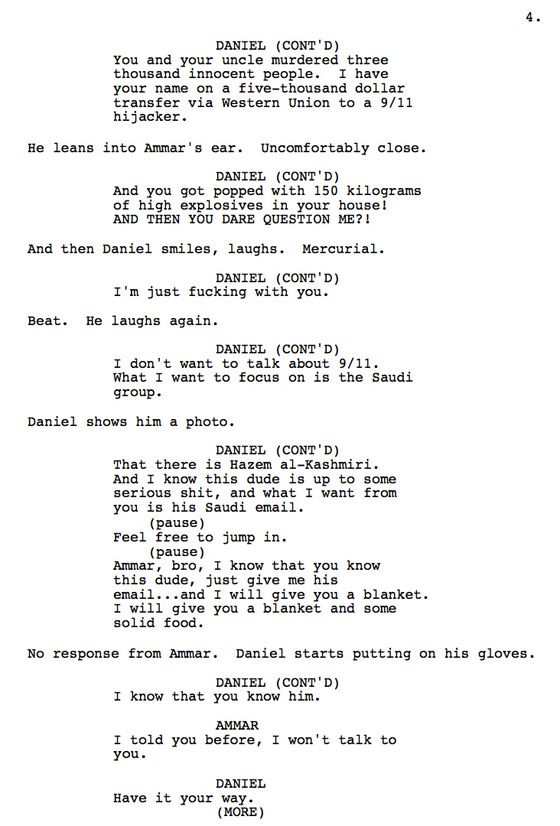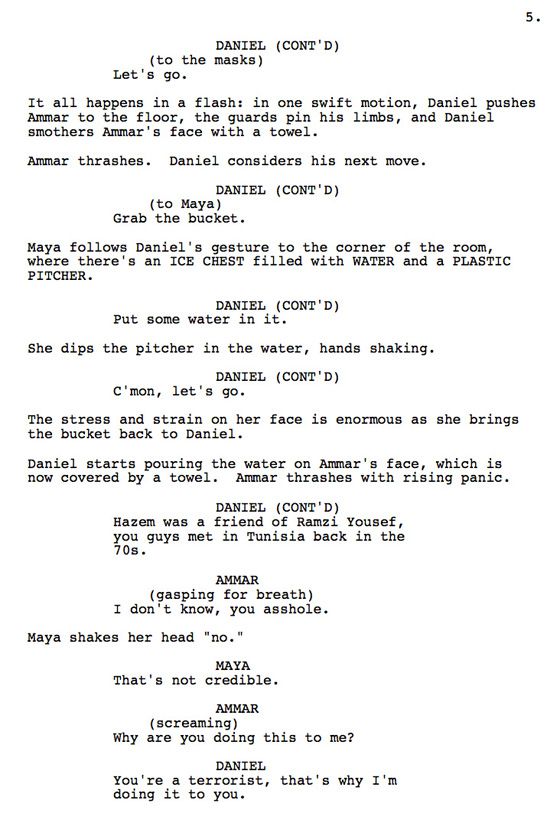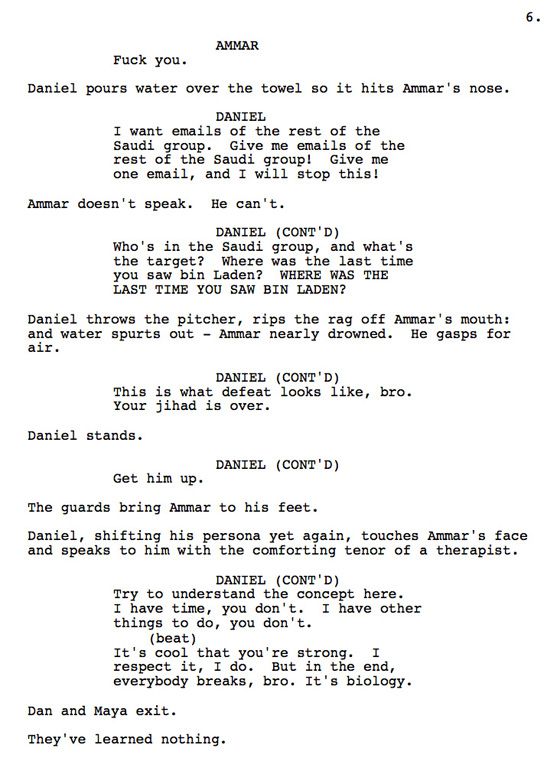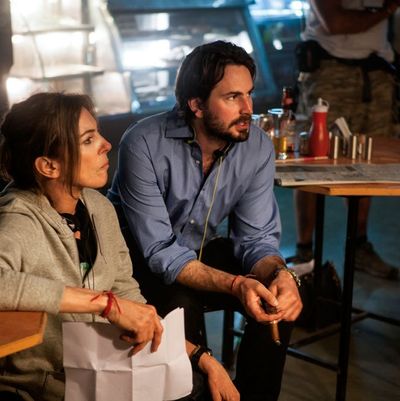
In this recurring feature, Vulture speaks to the screenwriters of 2012’s most notable movies about the scenes that they found most difficult to crack. What pivotal sequences underwent the biggest transformations on their way from script to screen? Today, Oscar-nominated screenwriter Mark Boal talks to Kyle Buchanan about crafting the controversial opening scene of Kathryn Bigelow’s hunt-for-Osama thriller Zero Dark Thirty:
The scene that has been the focal point of all the discussion has been the opening scene of the film, and it was definitely among the hardest to have in my life, let alone include in the script. I’ve had to revisit it over and over again after the film came out, and those torture scenes are incredibly painful. And they’re meant to be! I wanted to show the brutality and inhumanity of the situation, and you see the prisoner’s brain getting scrambled by the pressure and the punishment that’s being put on him. It was a dark and painful place to go as a writer, and I still don’t think I’ve totally shaken it off, to be honest with you.
We certainly talked about it being a challenging way to start a movie, but its place in the script is dictated by its place in the actual time line more than anything else. The Rendition Interrogation and Detention Program — they call it RID — was the foundation of the CIA’s fight against Al Qaeda in the early years, and the film is a chronological, linear retelling of that story, so we had to start at the beginning. I think it would have been wrong to skip over it and start later in the story.
I felt I had to put that material in because it’s part of American history that the CIA has admitted to, and it was more widespread than people have acknowledged, even though some of this stuff came to light through Abu Ghraib. I believe it’s a lot more widespread than people currently understand, actually. It’s brutal and extremely difficult to piece together from a research standpoint — just to talk to people who were in those rooms — and it’s painful to live with.
At the same time, I felt a certain sense that it was worthwhile and important to not shy away from that part of the story and to show the horror of it as grimly as Kathryn did. People should know what went on at those black sites, you know? I mean, if anything, the conversation about the film demonstrates that. There’s been more conversation about the film’s depiction of torture than there was when Obama decided not to prosecute anybody in 2009!
